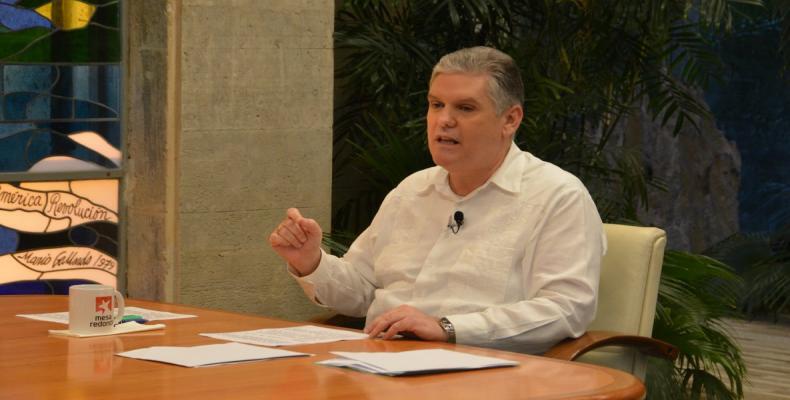Havana, March 28 (RHC)-- The uncertainty that the COVID-19 pandemic has created in international trade is expected to have a considerable impact on the economic situation in Cuba, already affected by the reinforcement of the U.S. blockade.
Speaking on Friday at the Round Table TV and radio program, deputy Prime Minister Alejandro Gil Fernandez described the grim prospect for the region’s economy, resulting from the growth of unemployment and poverty provoked by epidemics.
Gil Fernandez said the island’s top authorities are designing strategies to help weather the impact of this situation, find mitigation procedures, and establish guidelines for the recovery period, once the crisis is over.
Unlike other countries, he said, Cuba’s centralized government structure stands out as an essential strength at this difficult time.
“Here in Cuba, we do not respond to any international financial institution, and resources are allotted where the major needs of the population are,” he said.
Gil Fernandez, who is also the Minister of Economy and Planning, noted that topping the list of priorities is agricultural production. He said that new measures include the assignment of financial resources and fuel to the sector, especially to producers and enterprises that excel for their high output.
Responding to the slowdown or shutdown of sectors such as tourism, the deputy Prime Minister announced adjustments on the national investment plan. Now idle financial resources will be devoted to new investments in agriculture, the food industry, toiletry production, health services, construction materials, renewable energies, and the hydraulic sector.
Other measures include removing from circulation less efficient vehicles of the state sector, and the encouragement of maintenance and reparation of vehicles and facilities,
Gil Fernandez cautioned that the new measures in the economic area will have a gradual implementation and will be adjusted in accordance with how the international trade situation evolves.
The Minister of Domestic Trade, Betsy Diaz Velazquez, for her part, said in the program that the ration card system that has provided a safety net with subsidized staples to the most vulnerable sectors of the Cuban society comes very handy at this hour to facilitate the equitable distribution of high demand products.
She also said that the prices of subsidized products would remain unchanged.
In that regard, she announced that the basic food basket is guaranteed during April for the 11 million Cubans.


